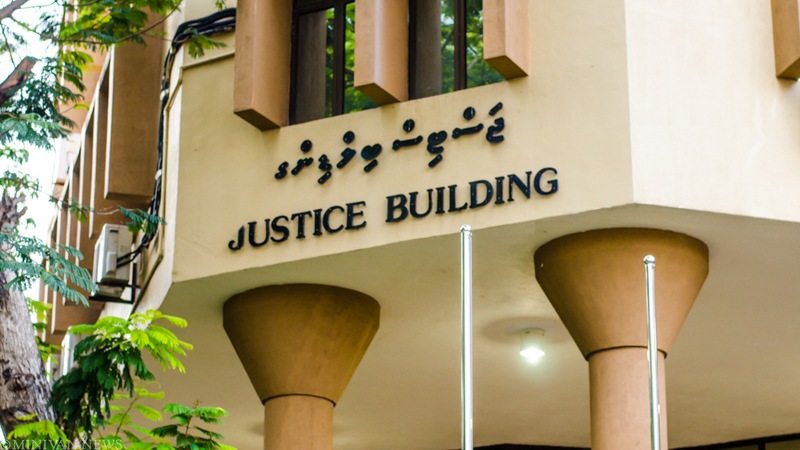58 people were detained from Laamu Gan by the Department of Immigration and Emigration (DIE) yesterday as the government’s special operation to deport undocumented migrant workers continues.
“This operation will continue, that was the number of people we could transport yesterday. As soon as we get seats from a boat travelling to Malé, more people will be taken in,” said Laamu Gan Council President Ahmed Salah.
The council led the operation alongside the DIE, the Maldives Police Services (MPS), and the Maldives National Defence Force (MNDF).
“This [the operation] is good for the island and for the country as well. This will create a lot of job opportunities for Maldivians,” said Salah.
While the most common type of work conducted by immigrants on the island is agriculture and fisheries, some are engaged in other occupations such as masonry, odd jobbing, and working in restaurants. Maldivian laws prohibits both fisheries work and self-employment for expatriates.
Salah estimated there would be around five hundred migrant workers on the 5000-strong island, most of whom he suggested were undocumented, and some of whom had fled the island during the operation.
He also noted that some of the workers taken in during the operation had valid visas but were considered undocumented as they were either not doing the work their visas were issued for, or were working for a different employer.
Impact
The main reason for having such a large migrant worker population on the island was their low wage demands compared to what is expected by locals, explained Salah.
“People give them around MVR2000 [per month] and an additional MVR500 for food and provide them with accommodation. There are so many of them on fishing boats and doing agricultural work,” he added.
According to the council president, migrant workers rent houses with each of them paying around MVR150 each day – agricultural workers live in small huts built on their fields, and fishermen live on their boats.
Following the council’s recommendations on behalf of the public, DIE has agreed not to take any action against locals who employ undocumented workers, Solah said.
“People are employing migrant workers like this because the implementation authorities have allowed them to do so. So we are requesting immigration to at least not to fine them [local employers], and let this time be a warning and show some leniency. So no fine have been imposed on the employers,” he explained.
Prior to the current operation, the immigration department conducted a voluntary repatriation program, offering leniency for undocumented migrant workers who wished to return to their home countries voluntarily at their own expense.
The current programme was announced in April by the Minister of Defence and National Security Mohamed Nazim – also head of the Immigration Department – who promised that “within three to four months the whole Malé will be cleaned”.
According to Nazim the priority would be to deport those detained in the operation as soon as possible.
Earlier this month 33 undocumented workers were detained as part of this nationwide action, although Minivan News was unable to obtain a comment from the immigration department regarding the operation’s specifics.
Human Trafficking
The Maldives was recently removed from the US State Department’s tier two watch-list for human trafficking after remaining on it for four consecutive years, narrowly avoiding international sanctions.
While the 2014 US State Department’s Trafficking In Persons (TIP) Report highlighted the recently enacted anti-trafficking law and the opening of a shelter for victims of trafficking, the report noted that there are “serious problems” in enforcing the law protecting victims.
Some of these problems highlighted in the report include lack of procedures to identify victims among vulnerable populations, and inadequate training for officials.
The report further stated that “the government penalized some victims for offenses committed as a result of being trafficked and also deported thousands of migrants without adequately screening for indications of forced labor.”
These concerns were echoed by Human Rights Commission of the Maldives (HRCM) Jeehan Mahmood.
“In the absence of victim identification guidelines it is very likely that victims of human trafficking would be taken in during such operations, because there is no clear way to identify if such a person is a victim or not,” she said.
Jeehan did, however, note that the anti-trafficking steering committee established under the new counter trafficking act had already drafted a national guideline of internationally accepted standards.
She highlighted the need to criminalise human smuggling along with trafficking, explaining that the HRCM has proposed to amend the law for this purpose.
“The two are very different, it is an issue of consent. So there should be a specific definition for this. It is very important for the State to understand this. And without a clear definition a victim of trafficking could be prosecuted for that,” she said.
Likes (1)Dislikes
(1)Dislikes (0)
(0) 
